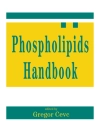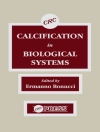At the beginning of the 20th century, German biologist Jakob von Uexküll created the concept of ‘Umwelt’ to denote the environment as experienced by a subject. This concept of environment differs from the idea of passive surroundings and is defined not just by physical surroundings, but is rather a ‘subjective universe’, a space weighted with meaning. Today, neuroscience provides a new way to look at the brain’s capability to create a representation of the world. At the same time behavioural specialists are demonstrating that animals have a richer mental universe than previously known. Philosophical reflection thus finds itself with more experimental and objective data as well. Nearly a century after the publication of von Uexküll’s founding work (‘Umwelt und Innenwelt der Tiere’ was published in 1909), neurobiologists, psychologists, sociologists, anthropologists, ethologists, and philosophers revisit his mail concept at the light of modern science
Mục lục
Anthropological Physiology: von Uexküll, Portmann, Buytendijk.- Essentialist Reasoning about the Biological World.- The Human Brain “Projects” upon the World, Simplifying Principles and Rules for Perception.- Umwelt: A Psychomotor Functional Event.- The Brain’s View of the World Depends on What it has to Know.- The Biology of Variations in Mammalian Color Vision.- The Evolution of Social Categories.- What is the Effect of Affect on Bonobo and Chimpanzee Problem Solving?.- Dogs (Canis familiaris) are Adapted to Receive Human Communication.- What Do Jays Know About Other Minds and Other Times?.- Blind as a Bat? The Sensory Basis of Orientation and Navigation at Night.- Point, Line and Counterpoint: From Environment to Fluid Space.












